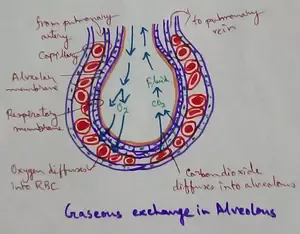Minerals
What is mineral?
The word mineral is very closely related to another word - ‘mine’. But it is not true that minerals are found only in mines. Practically minerals are present in all forms of rocks, soil particles and even in water.
On the Earth, minerals are present as chemical compounds. Each of such compounds consists of a metal and a non-metal component. Iron, Copper, Zinc, Silver, Gold, etc., are metals and Oxygen, Hydrogen, Nitrogen, Carbon, Sulphur, Phosphorus, etc., are non-metals.
Now we will discuss about the differences between a metal and a non-metal. Metal is an element having shiny look with metallic lusture. Metal can be hammered out into thin sheets and has a property of being drawn out into wire. It develops metallic sound when it is hit by any rigid body since all metals are solid except mercury. Non-metals are also elements but do not possess such properties.
Certain
rocks are rich in metallic elements and they are known as ores. Generally ores
are present deep under the Earth’s crust and to avail it we have to dig it out.
The deep pits, from which we collect the ores, are called mines. When we
process a specific ore, we can obtain a metal from it and we get iron,
aluminium, copper, gold, etc., from their specific ores.
Besides the metallic ores two other very important materials are obtained from underground, which are the fossil fuels like coal and petroleum. These are not obtained from ores but we can treat these as minerals because these are collected by digging.
Recent Articles
-
What Is Plasma? | Blood Plasma | Proteins | Nutrients | Cholesterol
Nov 07, 25 10:29 AM
Blood is a mobile fluid which is a connective tissue and is derived from the mesoderm like cell any other connective tissue. Colour of blood is reddish and that flows inside the blood vessels by means… -
Disorders of Respiratory System | Tuberculosis | Pleurisy | Emphysema
Oct 28, 25 11:39 PM
Tuberculosis is very common disease and is caused by a type of bacteria called Mycobacterium tuberculosis. This disease causes different trouble in the respiration and infection of several parts of th… -
Regulation of Respiration | Respiratory Centres | Inspiratory Area |
Oct 14, 25 12:13 AM
Respiratory Centre is the area that controls the rate of respiration and it is observed to be located in medulla oblongata and pons. Respiratory Centre has the following will dispersed components like… -
Explain Transport of Gases | External Respiration | Tissue Respiration
Oct 09, 25 11:35 PM
In humans gaseous exchange is completed in the following ways the steps are - External Respiration or Breathing - Breathing in false taking in of Oxygen and giving out of carbon dioxide in the body. M… -
Kind and Number of Teeth | Location of Teeth in Mouth | Care of Teeth
Sep 11, 25 12:52 AM
Kind and Number of Teeth





New! Comments
Have your say about what you just read! Leave me a comment in the box below.